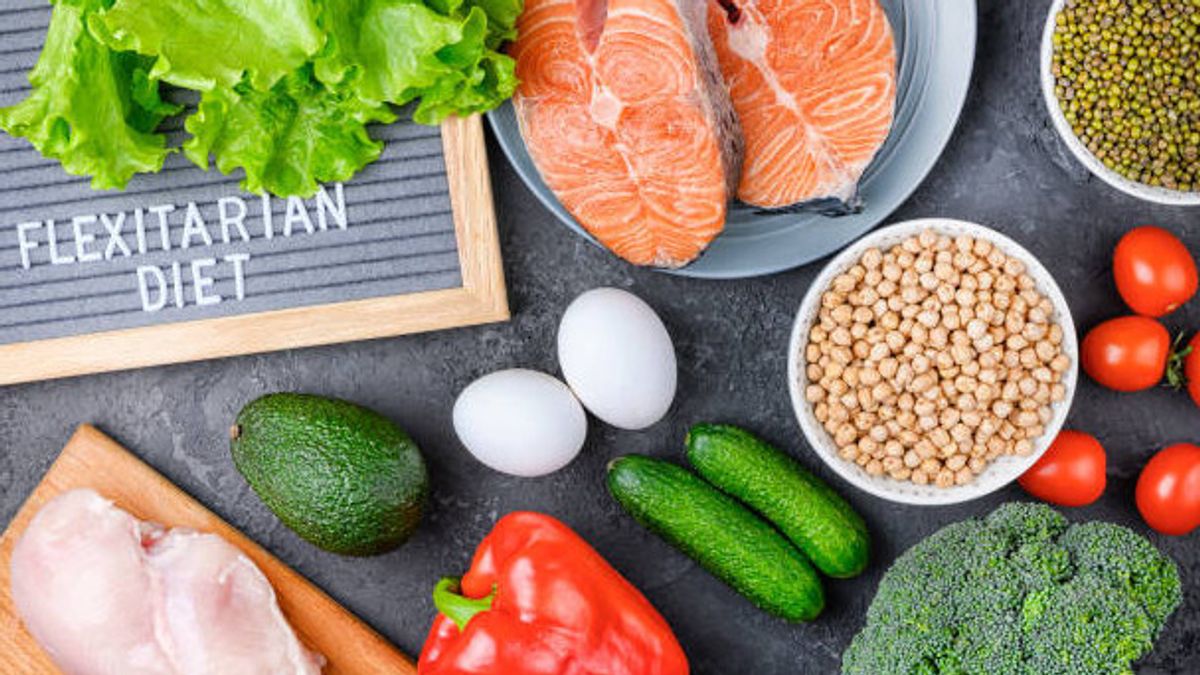JAKARTA - Eating a vegetarian diet, a flexitarian diet is also the choice of many people who continue to eat plant base but occasionally eat meat. This diet is called flexitarian which comes from flexible and vegetarian terminology.
This diet was initiated by dietist Jackson Blatner in his book The Flexitarian Diet. Foods consumed are plant-based or plant base as the main menu but may occasionally consume meat, milk and eggs.
According to Blatner, eating plant-based or plant-based foods can reduce the risk of fatal illness such as heart diabetes, and cancer. The facts revealed by Blatner, people who apply a flexitarian diet can be 3.6 years older.
In addition to the various benefits offered by the flexitarian diet, it turns out that there are still many consumers who are confused about running this one diet. Thus, it is not uncommon for myths to develop around the flexitarian diet. Quoting Forbes Health, Tuesday, May 16, here are general myths related to flexitarian diets.
A flexitarian diet can actually provide the same health benefits as a vegan diet, without completely eliminating all animal products. It's important to note that, in some cases, vegans are not always the same as healthy, as someone who follows a vegan diet can choose to eat many specific types of vegan foods, such as chips, fries, and sweet snacks, rather than a balanced diet.
In some cases, flexitarians can provide additional benefits such as increasing the diversity of gut microbiome alpha compared to other diets, including vegetarians, vegans, and American standard diets, according to a 2022 American Journal Clinical Nutrition study.
The diversity of gut microbiomes or the size of various types of bacteria in the digestive tract, has been associated with several health and disease outcomes. Experts agree that in many cases unhealthy intestines are associated with low diversity of gut microbiota.
According to the Danone survey, most Americans (91 percent) do not consider flexitarianism as a plant-based diet. Flexitarian diets are based on eating most plants while still allowing animal products, such as meat and milk, in moderate quantities. The term "inflating" or "rich-planting" helps clear some confusion and extend the recognition that "plant-based" does not mean "only plants".
Milk products are not only included in flexitarian diets but are also considered important, especially when you reduce meat intake. Nutrient-rich milk, yogurt, and cheese are a good source of protein and can help complete the meat on a flexitarian diet.
Dairy products also have lower carbon footprint than other animal proteins, such as beef and pork, with production of cheese, milk, and eggs that produce fewer greenhouse gases per kilogram, according to research by Our World in Data. Despite all this, 88 percent of US adults mistakenly believe that milk is not included in the flexitarian diet, according to Danone.
اقرأ أيضا:
It is very easy to consume high-quality proteins in sufficient quantities if you decide to go on a flexitarian diet. But the Danone survey found that 66 percent of US adults do not realize that dairy products contain high-quality complete protein, which is very important when reducing meat consumption.
Similarly, 73 percent of US adults do not consider alternative plant-based dairy products, such as soybeans, to provide high-quality protein. In the alternative category of milk, soy milk has the highest protein content almost the same as cow's milk and is also a complete protein.
The English, Chinese, Japanese, Arabic, and French versions are automatically generated by the AI. So there may still be inaccuracies in translating, please always see Indonesian as our main language. (system supported by DigitalSiber.id)


















